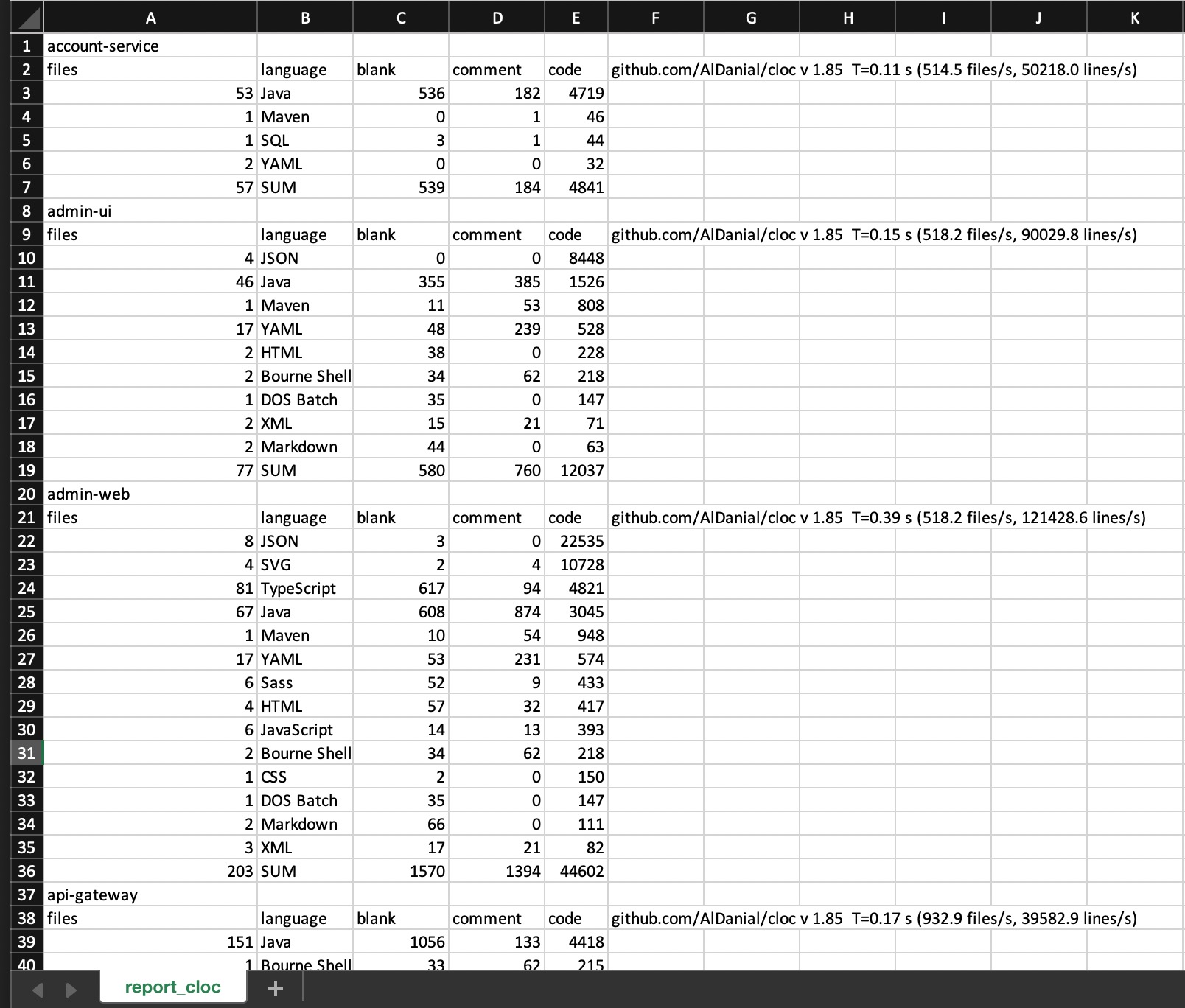I was asked to measure the total code size across all project repos. This write-up documents the process I automated.
Tasking
To collect code statistics:
Code
Steps:
Clone repositories
ghorg clone groupname --concurrency=50 --protocol=ssh --scm=gitlab --base-url=https://gitlab.com --token=CP-SevCew54pjq_JnuDb- Install ghorg per the docs.
- The token is your GitLab access token.
Generate reports
- Install cloc:
npm i cloc - Script below iterates over repos, runs cloc, and merges reports. Configure the four path variables before running.
const fs = require('fs'); const { execSync } = require('child_process'); // Path to the cloned repositories const rootDir = ''; // cloc executable const clocCommand = '/Users/qhe/.nvm/versions/node/v10.16.0/bin/cloc'; // Temporary directory for individual reports const reportFiles = ''; // Final merged report path const reportFile = ''; const deleteFolderRecursive = function (path) { if (fs.existsSync(path)) { fs.readdirSync(path).forEach(function (file, index) { var curPath = path + '/' + file; if (fs.lstatSync(curPath).isDirectory()) { deleteFolderRecursive(curPath); } else { fs.unlinkSync(curPath); } }); fs.rmdirSync(path); } }; /** * @description * Generate a report for each repository */ function createReport() { return new Promise((resolve) => { fs.readdir(rootDir, (_0, files) => { files.forEach((file) => { if (fs.statSync(`${rootDir}/${file}`).isFile()) { return; } execSync( `${clocCommand} ${rootDir}/${file} --csv --out=out/${file}.csv`, (error, stdout, stderr) => { if (error) { console.log(`error: ${error.message}`); return; } if (stderr) { console.log(`stderr: ${stderr}`); return; } console.log(`stdout: ${stdout}`); } ); }); resolve(); }); }); } /** * @description * Merge repository reports into a single CSV file */ function mergeReport() { let mergedReport = ''; fs.readdir(reportFiles, (_0, files) => { files.forEach((file) => { if (file === '.DS_Store') { return; } const contents = fs.readFileSync(`${reportFiles}/${file}`, { encoding: 'utf8', }); mergedReport += `${file.replace(/\.csv/, '')},,,,,\n` + contents; }); deleteFolderRecursive(reportFiles); fs.writeFile(reportFile, mergedReport, function (err) { if (err) { console.log(err); } }); }); } createReport().then(() => mergeReport());- Install cloc:
Result

- With filters in Excel I can quickly explore the data: 34 repos totaling 1,340,244 lines (including vendor code).
- Note: running cloc on the parent directory vs. summing repo-level runs can differ. I trust the per-repo numbers.
Closing Thoughts
With the script in place, future runs take only two commands.

